https://www.fizzicseducation.com.au/wp-content/uploads/2022/12/Liquid-nitrogen-cloud-1920-x-200px-dark-blue-wash.jpg
Beebot Robotics
An interactive hands on workshop designed to demonstrate to young children how a robot really works!
Programming and logic for young kids!
Using a simple intuitive interface, children program the Beebot to move forward, turn, stop, flash lights and make sounds all within themed challenges designed to teach children planning and spatial awareness.
Each Beebot can store up to 40 steps, with each step having flashing lights and sounds to confirm it is stored.
The students will work in pairs or threes as they are guided through a series of challenge mats and obstacles.
This engaging workshop offers students a chance to learn real-time programming in a fun atmosphere.
Plus, it’s great for young children to learn about coordinates and sequential reasoning.
Early Years Learning Framework Learning Outcomes
- 1.2 Develop emerging autonomy, interdependence, resilience and sense of agency
- 4.1 Children develop dispositions for learning such as curiosity, cooperation, confidence, creativity, commitment, enthusiasm, persistence, imagination and reflexivity.
- 4.2 Children develop a range of skills and processes such as problem solving, inquiry, experimentation, hypothesising, researching and investigating.
- 4.3 Children transfer and adapt what they have learned from one context to another.
- 4.4 Children resource their own learning through connecting with people, place, technologies and natural and processed materials.
- 5.1 Children interact verbally and non-verbally with others for a range of purposes.
- 5.3 Children express ideas and make meaning using a range of media.
- 5.4 Children begin to understand how symbols and pattern systems work.
- 5.5 Children use information and communication technologies to access information, investigate ideas and represent their thinking.
ELYF links to all of our preschool science workshops
Victorian Curriculum
- Objects can move in different ways (VCSSU025)
- Supported to engage in simple scientific inquiry (VCSIS026)
- Supported to use the senses to identify some characteristics (VCSIS027)
- Make links between observations and findings (VCSIS029)
- Use pictures, symbols, concrete objects and/or simple familiar words to facilitate communication (VCSIS030)
- Actively join in exploration of familiar objects and events (VCSIS036)
- Use both general terms and simple, scientific vocabulary to begin to describe their activities and observations (VCSIS040)
Identity:
- Children develop their emerging autonomy, inter-dependence, resilience and sense of agency
Learning:
- Children develop dispositions for learning such as curiosity, cooperation, confidence, creativity, commitment, enthusiasm, persistence, imagination and reflexivity
- Children develop a range of skills and processes such as problem solving, inquiry, experimentation, hypothesising, researching and investigating
- Children transfer and adapt what they have learnt from one context to another
- Children resource their own learning through connecting with people, place, technologies and natural and processed materials
Communication:
- Children interact verbally and non-verbally with others for a range of purposes
- Children express ideas and make meaning using a range of media
- Children begin to understand how symbols and pattern systems work
- Children use information and communication technologies to access information, investigate ideas and represent their thinking
Posts about the Beebot robotics visit
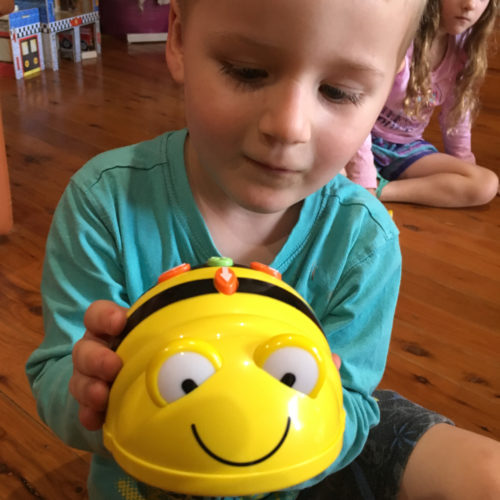
Engage young minds!
- Appropriate for ages 3 to 5 years with a maximum of 30 children per class. Please note that we are not permitted to cater for children under the age of 3.
- Access to at least 2 electrical power sockets with a wide floor space.
- Chairs are not required.
- Duration 60 minutes.
- Set up time 30 minutes and pack up time 30 minutes.
During Social Distancing – Contact us
and we’ll tailor a program to suit both your school and the State’s social distancing requirements. Further details here
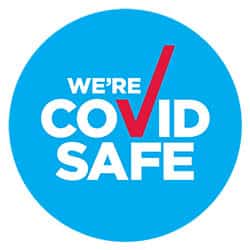
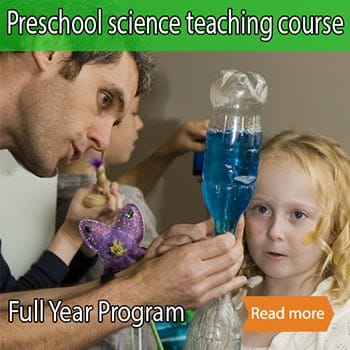
$490 inc. GST for 1 class.
Call 1300 856 828, or use this form to inquire or make a booking for your preschool.
For preschools outside of Metropolitan areas please contact us to discuss how this workshop can visit your school as part of a regional visit
We don’t charge per student as we know that this causes an additional administrative load on your school office. Most preschools tend to fill the science workshops & shows based on our recommended maximum number of students. If you have any questions please contact us.
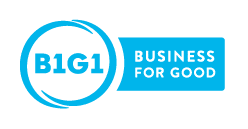 Find out more here
Find out more here
Enquire Now
Online course: Teaching Science in Early Childhood
- An entire year of science lessons for early learners
- Practical & linked to the Early Years Learning Framework Learning Outcomes
- 3.5 hours of on-demand videos
- Printable resource sheets & materials lists
- Attribute as teacher-identified teacher professional development hours

Read More
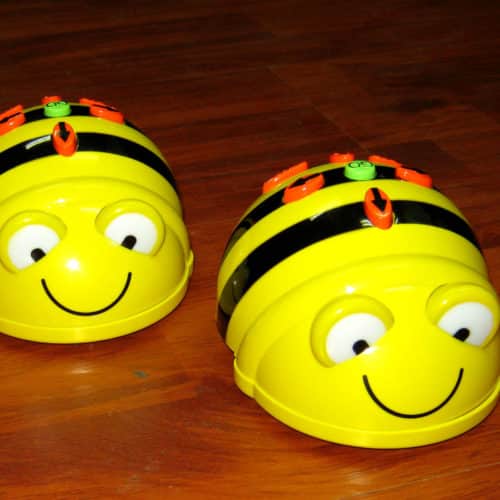
















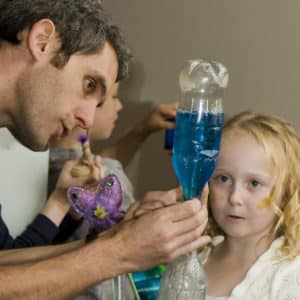
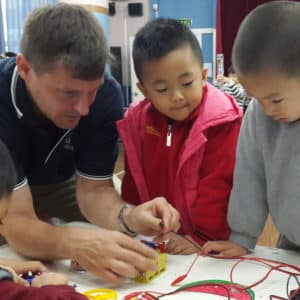
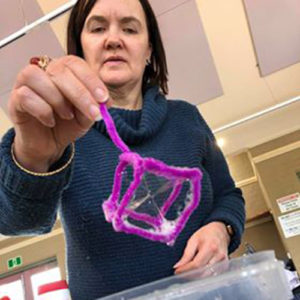




I just wanted to pass on how much the staff and students really enjoyed it and how perfect it was to launch our science week activities. The students were enthralled, educated and entertained – a perfect trifecta!
-Caulfield Grammar School – Big Science Big FunThanks so much for presenting at our school on Monday. Our students enjoyed the show.
-Greenvale Primary School – Big Science Big FunFizzics Education curated a thoughtful and hands-on experience for the children, incorporating practical, skill-based learning activities and followed by a science presentation at the end of the event involving liquid nitrogen. This was delivered safely and effectively, capturing both the children and the parents for the duration of the presentation.
-Macquarie Bank – Family Fun DayFizzics Education ran a show today at our school and it was wonderful. He was a great facilitator and the show was age appropriate and well done.
-Mount Zion Early learning centre – Little Science Big FunI just wanted to pass on how much the staff and students really enjoyed it and how perfect it was to launch our science week activities. The students were enthralled, educated and entertained – a perfect trifecta!
-Caulfield Grammar School – Big Science Big FunThanks so much for presenting at our school on Monday. Our students enjoyed the show.
-Greenvale Primary School – Big Science Big FunFizzics Education curated a thoughtful and hands-on experience for the children, incorporating practical, skill-based learning activities and followed by a science presentation at the end of the event involving liquid nitrogen. This was delivered safely and effectively, capturing both the children and the parents for the duration of the presentation.
-Macquarie Bank – Family Fun DayFizzics Education ran a show today at our school and it was wonderful. He was a great facilitator and the show was age appropriate and well done.
-Mount Zion Early learning centre – Little Science Big Fun